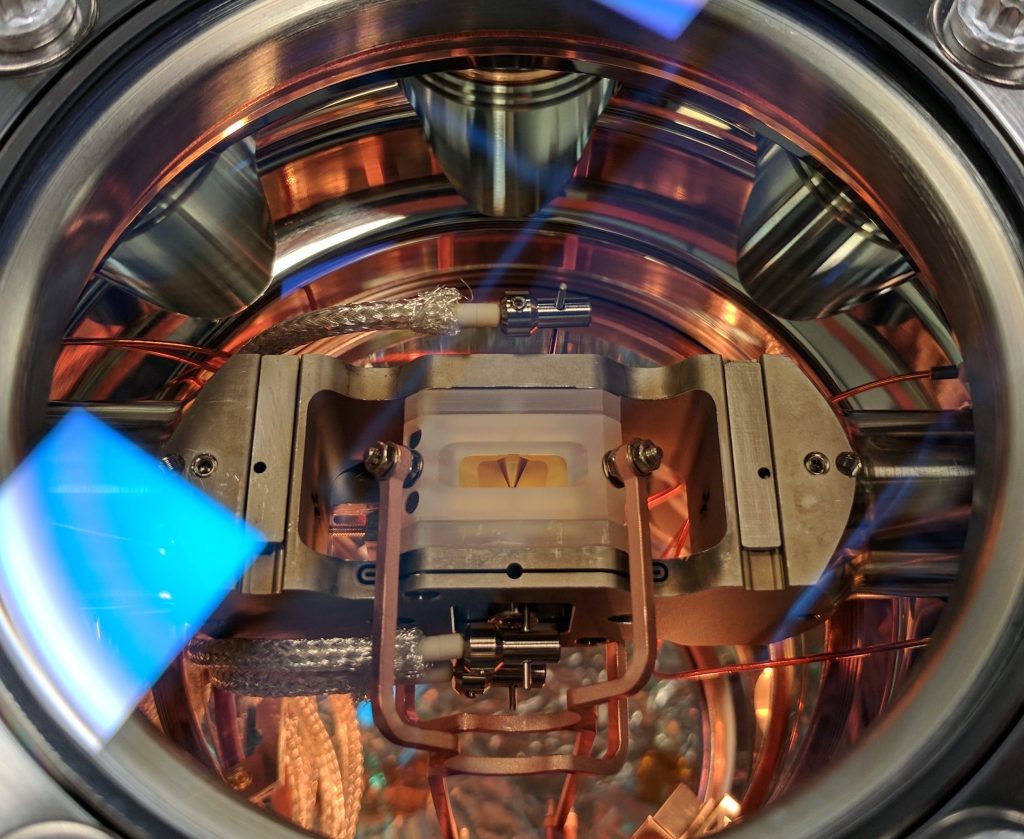Q-CTRL, a Sydney-based startup that provides quantum control engineering solutions, announced today it has raised a $25 million Series B led by Airbus Ventures with participation from Ridgeline Partners, Main Sequence Ventures, Horizons Ventures, Square Peg Capital, Sierra Ventures, DCVC, Sequoia Capital China and In-Q-Tel.
The latest funding will support hiring staff and enable new data-as-a-service markets powered by quantum sensing, Q-CTRL founder and CEO Michael Biercuk said. It also will continue to invest in developing its quantum control for quantum computing and quantum sensing for acceleration, gravity and magnetic fields, Biercuk added. To date, the company has raised more than $43 million (60 million AUD) in total capital.
“Q-CTRL’s vision has always been to enable all applications of quantum technology. This new fundraising is critical in realizing our mission to deliver real value to the space, defense and commercial sectors,” said Biercuk.
Q-CTRL provides infrastructure software that improves quantum computing performance by addressing the most pressing challenge in the field — hardware error and instability, Biercuk told TechCrunch.
The Series B financing event comes on the heels of major technical and product development recently announced by Q-CTRL. It includes technical demonstrations using core Q-CTRL technology, known as quantum logic gates, to improve the performance of quantum algorithms executed on real quantum computers by 2,680%.
Q-CTRL and Quantum Machines team up to accelerate quantum computing
The company is also developing space-qualified quantum sensors and exploration technologies for Earth, the moon and Mars with a consortium of Australian firms led by Fleet Space Technologies. Its quantum sensing clients include Advanced Navigation, the Australian Department of Defense, Air Force Research Lab and the Australian Space Agency.
“The team’s impressive quantum control software suite enables speed and agility at a moment of rapid acceleration for the entire quantum industry,” said Lewis Pinault, partner of Airbus Ventures based in Tokyo. “We’re particularly excited about Q-CTRL’s widening span of advanced applications and solutions, including lunar development, geospatial intelligence and Earth observation, all increasingly critical in the global effort to address the accelerating planetary system crises we now face.”
Its revenue in fiscal year 2020-2021 was up 3X year on year, and the company generated over $9 million in sales and booking for its new quantum sensor business, which only commenced in late 2020, Biercuk said.
Like most companies, the pandemic caused a substantial pause in growth, which resulted in significant losses in its planned international sales and marketing engagement, Biercuk said. Despite this, the company has grown from about 20 to 60 on its team since January 2020, he said.
Biercuk added that the company operates a large team of quantum control specialists with over 30 Ph.D.-level researchers driving its research and product development in quantum computing and quantum sensing.
The company recently launched Black Opal, an interactive and accessible online learning platform that enables anyone to learn quantum computing. Biercuk said that it surpassed its 10-day sales target in two and a half days.
In 2017, Q-CTRL was spun off from the University of Sydney, where Biercuk works as a quantum physics and quantum technology professor.

Q-CTRL currently operates offices in Sydney and Los Angeles. It will open an office in Berlin with the first employees starting next month, Biercuk noted.
The quantum computing industry is estimated to be worth more than $850 billion in annual value by 2040, according to a report by Boston Consulting Group. The global quantum sensors market is projected to increase to $299.9 million by 2024 from $161 million in 2019, based on a report by BCC Research.
IBM publishes its quantum roadmap, says it will have a 1,000-qubit machine in 2023































Comment